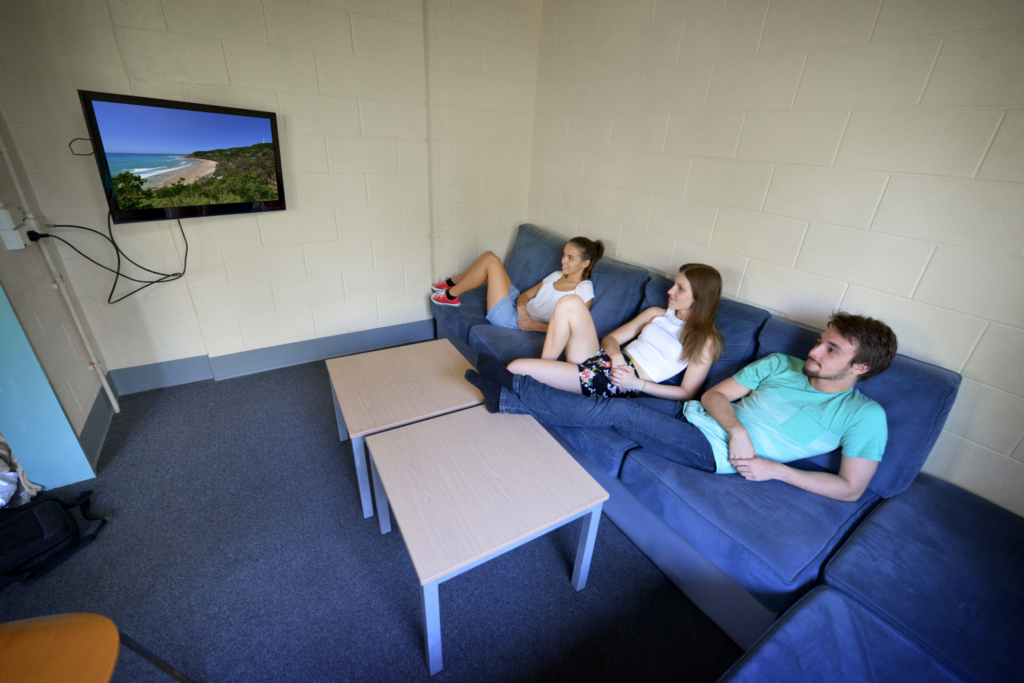Starting college introduces plenty of new experiences, one of the most significant being living with a roommate. Of course, roommate compatibility is paramount in this context, profoundly impacting your overall college experience. But what makes a roommate situation successful? It’s not just about sharing similar interests or academic goals but about cohabiting harmoniously in a small, shared space. This article aims to unravel the complexities of finding and living with a compatible roommate. We’ll get into the essential factors that contribute to a positive shared living experience, offering practical advice and strategies to help you make the most of this unique aspect of college life.
In this post:
Understanding Roommate Compatibility
The concept of roommate compatibility extends far beyond sharing similar interests or coming from similar backgrounds. It’s a multifaceted dynamic that involves how well you can coexist in a shared space, often under stressful academic and social pressures. At its core, it’s all about balancing personalities, lifestyles, and expectations. It also involves creating an environment where both students feel comfortable, respected, and valued. The right person can be a source of support, making college life more enjoyable and less stressful. However, a mismatch can lead to tension and discomfort. Therefore, it’s essential to approach the search for a roommate carefully, understanding that it’s not just about finding a friend but a good living partner.
Key Factors Influencing Compatibility
Communication Styles
Communication is the cornerstone of any successful relationship, and this holds especially true when sharing a dorm. Effective communication can prevent misunderstandings and resolve conflicts before they escalate. However, you must recognize that everyone has a unique communication style. Some may prefer direct conversations, while others might adopt a more subtle approach. Understanding and adapting to these differences is key to a harmonious living arrangement. It’s also important to establish open lines of communication from the outset, discussing expectations and setting ground rules. This approach ensures both sides feel heard and understood, paving the way for a respectful and cooperative environment.
Lifestyle and Habits
Living habits and daily routines play a significant role in determining compatibility. These include sleeping patterns, study habits, cleanliness, and noise tolerance. For instance, if one roommate is a night owl while the other is an early riser, this can create friction. Similarly, differing attitudes toward cleanliness and organization can lead to tension. It’s important to have an honest discussion about these habits early on. This conversation can help identify potential conflict areas and establish mutually agreeable routines. Finding someone with a similar lifestyle or being willing to adapt and compromise can significantly enhance the experience, making college life smoother and more enjoyable.

Personal Values and Beliefs
In a shared space, respecting each other’s beliefs and values is crucial for maintaining harmony. College is a melting pot of cultures and backgrounds. Thus, roommates will likely have differing viewpoints and life experiences. These differences, if not handled with respect, can lead to conflicts. However, when managed well, they can provide opportunities for learning and growth. It’s important to approach such differences with an open mind and a willingness to understand and respect each other’s perspectives. This mutual respect forms the foundation of a strong and enduring relationship.
Strategies for Finding a Compatible Roommate
Finding a compatible roommate can seem complicated, but many colleges offer resources to help. Roommate matching services provided by universities often use questionnaires to pair students based on compatibility factors. In addition, social media and online forums can be useful tools for connecting with potential candidates. These platforms allow students to discuss their habits, preferences, and expectations before deciding to live together. Meeting potential roommates in person, if possible, is also advisable. This meeting can provide a better understanding of whether the living arrangement would fit. During these interactions, asking direct questions about daily routines, study habits, and lifestyle preferences is important to gauge compatibility.

Even with the most compatible roommate, conflicts can arise. It’s an inevitable part of any shared living arrangement. The key to navigating these challenges lies in effective conflict resolution skills. Open and honest communication is crucial when addressing issues. It’s important to approach conflicts with a mindset of finding a solution that works for both parties rather than winning an argument. Flexibility and compromise are essential qualities in maintaining a peaceful living environment. However, if conflicts are persistent or unresolvable, seeking help from residence advisors or counselors can provide external perspective and mediation.
Building a Supportive College Community
One of the less discussed yet vital aspects of a positive roommate relationship is the ability to extend support during times of change or stress, a common occurrence in college life. Just imagine this scenario. In the high-speed academic atmosphere of New York City, students often find themselves needing to relocate on short notice – be it for a summer internship or a semester abroad. In these moments, the support of a roommate can be invaluable. Offering help finding moving resources, such as recommending bestmovers.nyc for their comprehensive list of dependable movers in New York, can be a small but significant gesture of solidarity. This kind of support eases the logistical challenges of moving and reinforces the bond between roommates. These acts of kindness and understanding create a nurturing and supportive living environment essential for a positive college experience.
Maintaining a Positive and Healthy Relationship
To maintain a positive and healthy relationship, you must establish and respect each other’s boundaries. This respect includes personal space, belongings, and time. Regular check-ins can help ensure that both roommates are comfortable with the living arrangement and can address any emerging issues before they become significant problems. Sharing responsibilities, like cleaning and grocery shopping, can also help maintain a sense of fairness and cooperation. Furthermore, embracing and celebrating differences can lead to a richer, more enjoyable college experience, providing opportunities to learn from each other and expand personal perspectives.

Conclusion
In conclusion, roommate compatibility is more than just sharing a room; it’s about creating a shared life that enhances your college experience. By understanding and prioritizing factors like communication, lifestyle, and respect for personal values, students can get along and foster a positive and enriching environment. Keep these tips in mind, and you’ll be well on your way to a harmonious and fulfilling roommate relationship.







